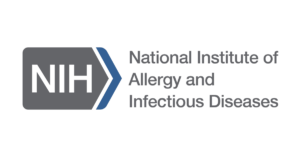Healthy Volunteer Research Study
Researchers at the NIH are partnering with healthy individuals to participate in a clinical research study. Join our compensated study today!

Fast Facts
Able To Participate In-Person At The NIH Clinical Center In Bethesda, MD
Available for 11 In-Person Outpatient Visits And Additional Telephone Calls Over The Course Of 5 - 7 Months
Open to having clean, laboratory-bred ticks placed on a secure, contained spot on your skin
Willing to undergo 10 total Skin punch Biopsies throughout the course of the study
Study Background
The NIH Clinical Center is looking for healthy individuals to participate in a clinical research study. Each year, the number of cases of tick-borne diseases increases. Researchers want to learn more about how the immune system responds to tick bites, and how the response changes when bitten 2 or 3 times. This information may help future research in the development of vaccines against tick bites.
The ticks used are clean laboratory-bred ticks that have tested negative for known diseases that can be transmitted to humans by ticks. The ticks used for this study have just hatched and have not fed on other animals. These ticks are approximately the size of the tip of a needle. We have used these ticks in other clinical studies. Individuals who have participated in past studies tolerated the tick feeding. There were no serious problems and the main complaint was mild itching at the tick-feeding sites.
Further research today and join our compensated study!

Study Background
The NIH Clinical Center is looking for healthy individuals to participate in a clinical research study. Each year, the number of cases of tick-borne diseases increases. Researchers want to learn more about how the immune system responds to tick bites, and how the response changes when bitten 2 or 3 times. This information may help future research in the development of vaccines against tick bites.
The ticks used are clean laboratory-bred ticks that have tested negative for known diseases that can be transmitted to humans by ticks. The ticks used for this study have just hatched and have not fed on other animals. These ticks are approximately the size of the tip of a needle. We have used these ticks in other clinical studies. Individuals who have participated in past studies tolerated the tick feeding. There were no serious problems and the main complaint was mild itching at the tick feeding sites.
Your participation in this research study may help researchers develop vaccines against tick bites. Further research today and join our compensated study!
Additional Information
The aim of this study is to learn how peoples’ bodies, particularly the skin, respond to tick bites. This information may help future research in the development of vaccines against tick bites.
A skin punch biopsy is a medical procedure that helps doctors learn more about an individual’s skin.
First, the doctor will numb a small area of your skin with a medicine. A sharp instrument about the size of a pencil eraser will be gently pressed against your skin and twist it to take a small round piece of skin. After that, the doctor will put a bandage on the area where they took the sample.
The research team will be more than happy to answer any questions you may have about this procedure as well.
Ticks are placed under a dressing on the skin. The dressing secures and contains the ticks.
The ticks used in the study are clean laboratory-bred ticks that have tested negative for known diseases that can be transmitted to humans by ticks. The ticks used for this study have just hatched and have not fed on other animals. These ticks are approximately the size of the tip of a needle. We have used these ticks in other clinical studies.
More than 100 individuals have participated in studies using this procedure, with no serious problems. The main complaint was mild itching at the tick bite sites.
You may qualify for this study if you meet the following criteria.
Key Criteria:
- 18+ years old
- No history of Lyme disease or other tick-borne diseases
- No known history of tick bites
- Not pregnant or breastfeeding
- Currently in good health
Once enrolled, this study involves:
- 3 sets of tick placement procedures and 2 follow-up visits.
- The 3 procedures are approximately 1-month apart.
- There will be follow-up visits at 1 month and 3 months after the final procedure.
- During the first procedure, there will be 3 clinical visits. At the first visit, participants will have 2 skin punch biopsies at healthy skin and laboratory-bred, larval ticks will be placed under a dressing at 2 different sites on the skin. The ticks will be removed, and 2 skin punch biopsies will be collected at the site of the tick bites the next day and 2 to 4 days after the first visit.
- For the 2nd and 3rd procedures, ticks are placed in only one site, and removed 2-3 days after placement. Again, two skin punch biopsies are collected at the tick bite sites.
- Throughout the study, participants will complete symptom diary cards, answering questions about itching at the tick feeding sites.
- Blood will be collected at every visit.
- Photos will be taken at every visit of the tick feeding sites.




